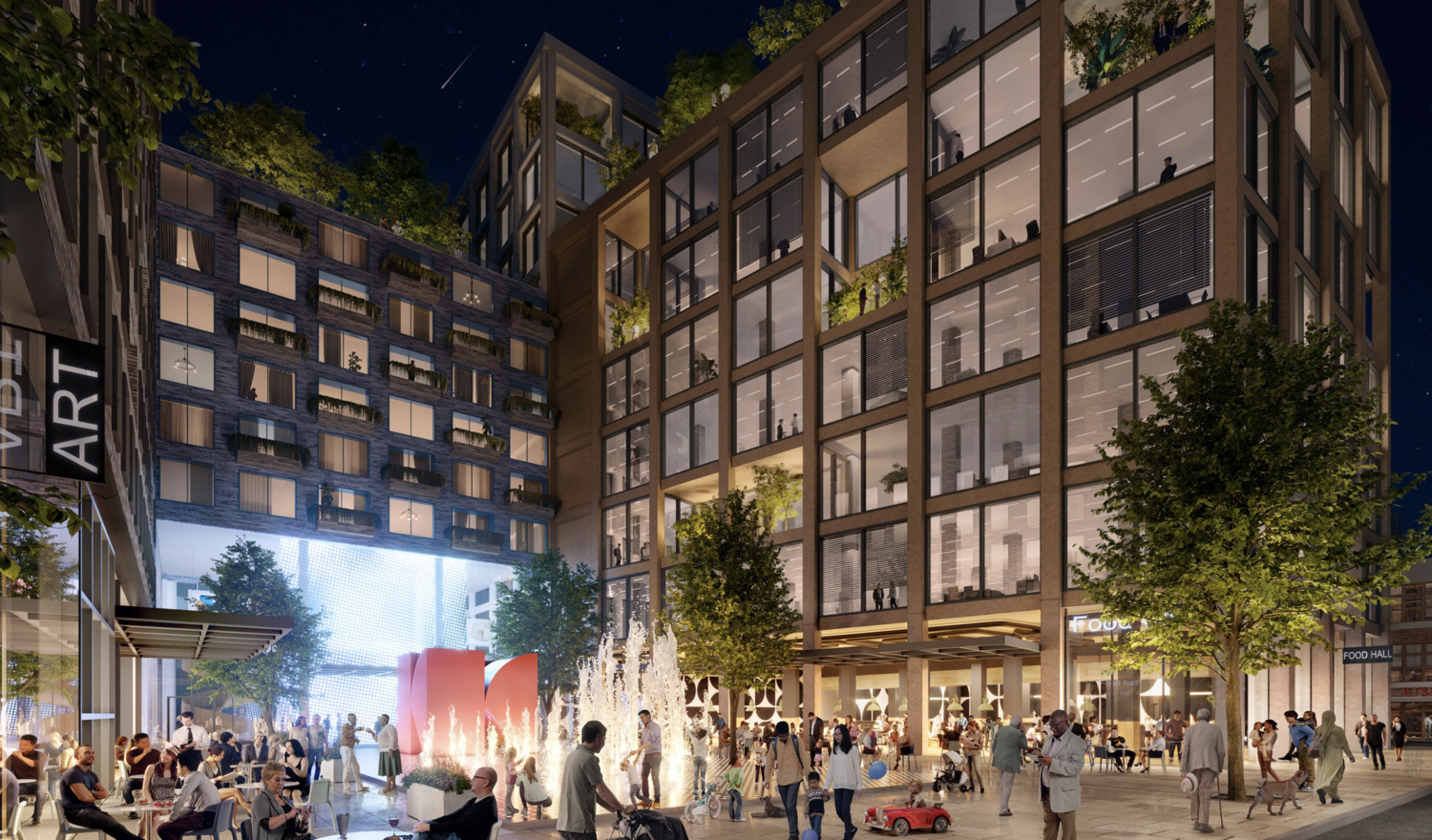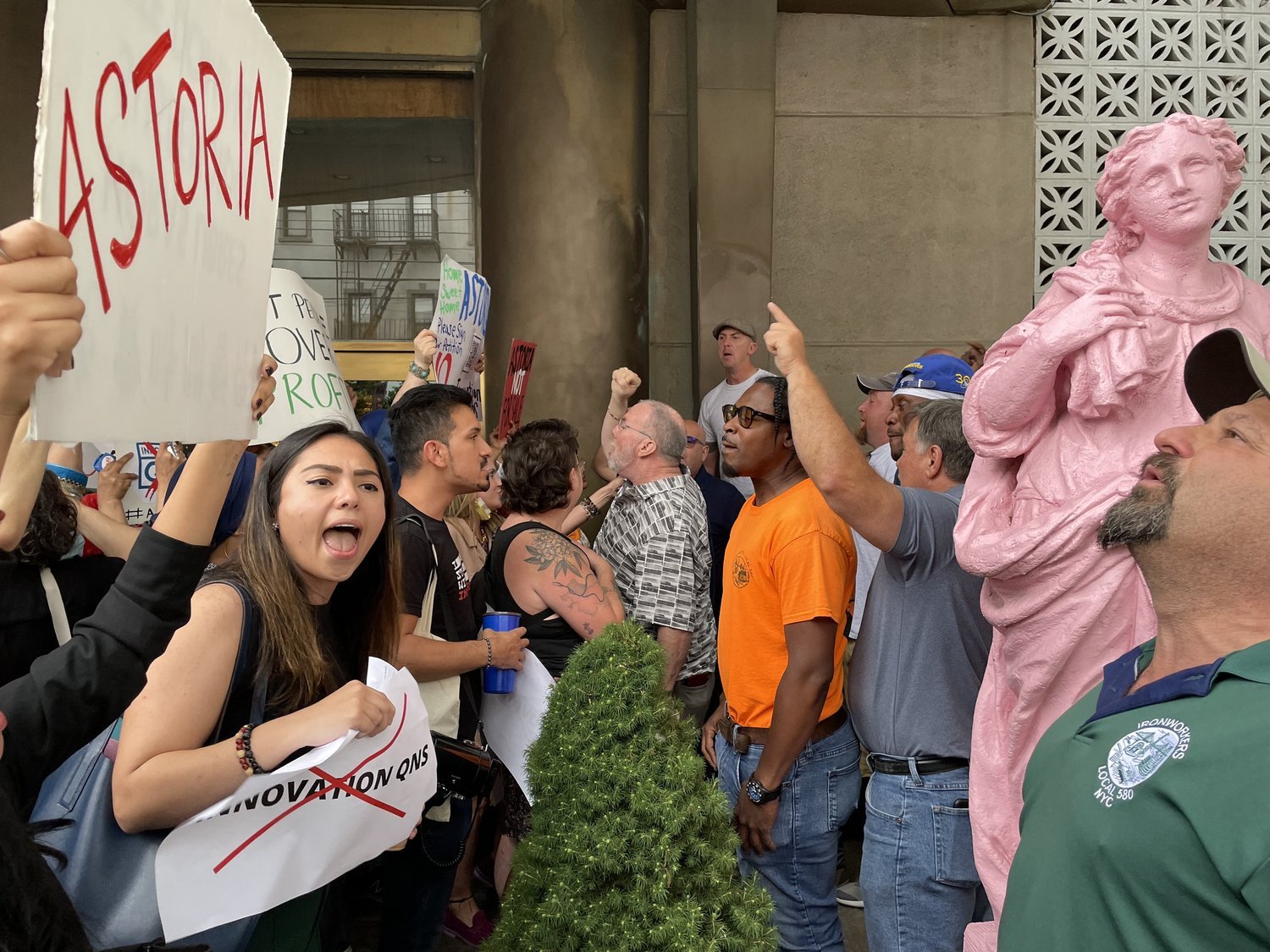Following ‘bloody battle,’ Innovation QNS heads toward approval
/The City Council's Committee on Land Use unanimously approved Innovation QNS on Monday, Nov. 21, 2022. The project will now likely head to the full Council for a vote on Tuesday. Rendering via Innovation QNS
By Jacob Kaye
Following months of negotiations and heated disagreements that sparked a citywide conversation about how elected officials plan to deal with the city’s housing crisis, the City Council’s Land Use Committee unanimously approved the controversial Innovation QNS development slated for Astoria on Monday.
The largest proposed development in the history of Queens now faces only one final major hurdle – the full City Council. But with the committee’s approval, and, more importantly, the approval of local City Councilmember Julie Won, the project is expected to be pushed through by the legislative body when it likely holds a vote on the project on Tuesday.
Won’s support was never a given. Since taking office at the start of the year, the District 26 official has regularly criticized Silverstein Properties, BedRock Real Estate Partners and Kaufman Astoria Studios – the developers behind the project – for their lack of community outreach and their commitment to building affordable, income-restricted housing.
However, in the final months of the city’s review of the $2 billion project, it was the affordable housing commitment that was at the center of the debate.
As it stands on Monday, the approximately 3,200-unit, twelve-building development will feature a little over 1,430 permanently affordable units, with as many as 658 renting to formerly homeless or very low income New Yorkers at 30 percent of the area median income, or units that would be made available to a single person making $28,020 or a family of three making $36,030. The final deal includes about double the initial affordability commitment made by the developers when they began the city’s Uniform Land Use Review Procedure in the spring.
“This was a pretty bloody battle,” Won told the Eagle on Monday following the committee’s vote. “But we are all thankful that we got this far.”
City Councilmember Julie Won came out in support of the current proposal to build Innovation QNS on Monday, Nov. 21, 2022. The full City Council will likely approve the project in a vote on Tuesday. Screenshot via City Council
Innovation QNS, which would stretch five blocks from 37th Street to Northern Boulevard, between 35th and 36th Avenues, has been in the works for about half a decade. Won’s predecessor in the Council, Jimmy Van Bramer, said that the project was out of character with the neighborhood – the area slated for development mostly features industrial businesses and the surrounding community is largely made up of one- to three-family homes.
The city’s review of the project has been filled with tense clashes, back-and-forth spats, and several rejections, including from the local community board and Queens Borough President Donovan Richards, who eventually changed his position on the project after the developers said they’d commit to making 40 percent of the project’s units affordable.
As it currently stands, around 45 percent of the development will be income restricted. In the final months of negotiations, Won had demanded the developers commit to 55 percent. In a final push to gain Won’s vote, the developers proposed building more units, a bulk of which would be income restricted, rather than meeting her at 55 percent.
Also worked into the final deal is a $2 million legal fund to be paid for by the developers that would go toward anti-displacement and anti-tenant harassment legal work. Residents who live on the outskirts of the proposed development area have repeatedly expressed concern that Innovation QNS, if built, will invite speculation from other developers aiming to capitalize on the blooming of a new neighborhood.
In the final week of negotiations, the developers upped the total number of units from 2,800 to 3,200 – 300 of the additional 400 units were promised to be income restricted. The initial proposal – the one that was rejected by Richards and Queens Community Board 1 – promised 700 total affordable units.
“I wish I could have more, I always want more from my community, but this is the beginning,” Won said. “This is now the floor that we have set for our community – 45 percent – and that's a pretty good floor to have.”
Representatives for Innovation QNS did not respond to request for comment on Monday.
The Department of City Planning is expected to rule on the modifications made to the project on Tuesday morning. Should DCP’s ruling take place on Tuesday and should they approve the changes, the City Council is expected to vote on the project later in the day. It’s largely expected that the Council will vote in favor, sending the project to the mayor, who supports Innovation QNS, for the final thumbs up.
“Today’s vote is another critical win in the fight against our city’s affordable housing crisis,” Mayor Eric Adams said in a statement issued after Monday’s committee vote. “In a community with a lower vacancy rate than the rest of the city, creating this kind of affordable housing is a game-changer.”
City Council Speaker Adrienne Adams has also expressed support for the project and celebrated the Land Use Committee’s vote on Monday.
“New Yorkers urgently need affordable housing now, and we know that deep affordability and solutions to homelessness are key to addressing the interconnected crises facing our city,” the speaker said. “The newly revised project negotiated by Councilmember Won and approved by our Land Use Committee is an unprecedented step to expand affordability and community benefits that help a neighborhood and city that is currently only experiencing increased housing costs and pressures.”
The mayor has made supporting private developers who commit to building affordable housing a key component of his plan to battle the city’s housing crisis – he’s dubbed the policy the “City of Yes.” Progressive members of the council, Won included, have largely pushed back against that strategy.
The councilmember said that while she wishes the affordable housing commitment would have been higher, she’s proud of the final deal that came within the parameters of the city’s current housing policies.
“[The developers, myself and the community advocates] will agree that the ULURP process is very, very badly broken, and it is painful,” she said. “In the binary of ‘yes’ or ‘no,’ where we are living in a ‘City of Yes,’ I don't have an option to say maybe.”
“When I have the community behind me and when we're strongly opposed to the project, then can we have a shot at getting the best deal possible,” she added. “The power that I hold as a single councilmember is minuscule compared to the power that the mayor has in this city.”
The city’s review of Innovation QNS has often been tense. Pictured here is a clash between those opposed to the massive, five-block development and those in support before a Community Board vote on June 22, 2022. Eagle file photo by Jacob Kaye
In a statement released Monday, Mayor Adams also acknowledged that the city’s rezoning process was in need of a change.
“[A]s this process shows, we need a better system to create new housing and make New York City a true ‘City of Yes,” the mayor said. “My administration is moving forward plans for a citywide zoning text amendment that would help the city truly meet New Yorkers’ housing needs and create new housing across the entire city.”
Evie Hantzopoulos, a Community Board 1 member who has long opposed the project, said that while the end result of the negotiations was better than what had originally been proposed, she, and others who fought against Innovation QNS, feel slightly disappointed.
“I think the general consensus among the groups that have been in opposition to this project is that while we are grateful for the fight that the councilmember has put up to get to the level of affordability and the number of units…I think it still falls short in terms of of what we wanted to see, which was a majority of affordable housing,” Hantzopoulos said.
“We know that it's not always that easy, but that is what we wanted to see,” she added.






